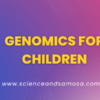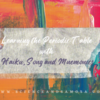Autism numbers rising

Autism is a growing problem worldwide
The prevalence of autism is on the alarming rise. Autism is the world’s third most common development disorder. Autism is ten times more common today than it was in the 1980s, according to the Centers for Disease Control and Prevention. Some studies point towards a 10% to 17% rise annually in the last couple of years. Also, autism is far more likely to affect boys than girls, a fact that is still unexplained.
Autism is a growing problem worldwide and possesses a greater healthcare and economic burden to the developing nation like India. India is home to 10-15 million people with autism. In India, most children with Autism are diagnosed between 3 and 6 years of age.
Autistics are one of the largest minority groups in the world – Steve Silberman
Autism is the result of multiple genes , anywhere from three to 20, interacting with each other.
Do you know enough about this Disease
Autism is a neuro developmental disorder with a range of clinical presentations, now classified in a broader class of disease called autism spectrum disorders (ASDs). If a child has Autism, it’s not parents upbringing, it’s the genes to blame. Autism is the result of multiple genes , anywhere from three to 20, interacting with each other. If a couple has one autistic child, there is a 5 to 10 percent chance that siblings will have some sort of autistic disorder. With identical twins, the likelihood is 60 percent.

Autism: across countries

1988 American road comedy drama which tells the story of an autistic savant
Rain Man is a 1988 American road comedy drama which tells the story of an autistic savant and his brother. Dustin Hoffman and Tom Cruise played the lead roles. The release and subsequent Academy Award for the film Rain Man in 1988 brought autism to the conscious world of the educated in India, just as it did in many countries.
Most well-known Indian film that has a character with Autism Spectrum Disorder : ‘My name is Khan’ released in 2010 and ‘Barfi’ released in 2012
Signs of Autism
- Deficits in social interaction and communication, and unusual and repetitive behavior
- They may show little or no interest in people including their parents
- They live “in a world of their own”
- Autistic individuals may be remarkably gifted in certain areas like music or mathematics
- They appear to avoid gaze or show unusual eye contact
- They show difficulty in taking turns in games or activities
- They may express extreme unusual fears or have poor awareness of danger or not show fear
- They lead adult by the arm to have needs met, or use adult hand as an object
- They like sameness in everyday routines. They may even show resistance to change in routines or surroundings
- They display good rote memory for nursery rhymes, commercial jingles, irrelevant facts……
Autism: History
The word autism comes from the Greek word “autos,” which means “self.” The term autism first was used by psychiatrist Eugen Bleuler in 1908. He used it to describe a schizophrenic patient who had withdrawn into his own world. The pioneers in research into autism were Hans Asperger and Leo Kanner.
Autism and India:
The earliest mention of autism in Indian scientific literature goes back to 1944, from a Viennese pediatrician named A. Ronald working in Darjeeling. The first time the term “autism” appeared in the Indian literature was in 1959. By late 1980s autism awareness programs slowly started and gained momentum by beginning of 2000s. In 1991 under the leadership of Merry Barua, parents got together and founded Action For Autism (AFA), to advocate for children and adults with autism and their families. In 1994, a school, Open Door, a specialist school for autism was started. After relentless efforts of non-governmental organizations and parents associations autism was legally recognized by the government of India in 1999 as a disorder.
In 2000, a boy with autism from Bangalore, Tito Mukhopadhyay, published his first book, Beyond the Silence: my life, the world and autism. Through this book he provides some unique insights into the nature of autism in general. Soma, his mother was the strength behind his transformation. Soma refined her Rapid Prompting Method and instruct thousands of students around the world. Currently she is running “Helping Autism through Learning and Outreach – HALO” foundation
Even though lot of effort is been directed to create awareness about this disease, in India strong social stigma is related with dysfunctions of the mind, therefore efforts are made to maintain a ‘normal’ identity as long as possible. As soon as an individual has the word Autism attached to their name they face discrimination – from neighbors, friends, school. Children with Autism are often neglected by teachers and sometimes denied admission by school administrators.
Treatment:
There is no known cure for autism in western medicine, but intensive therapy helps a child learn a wide range of skills, from making eye contact to hugging to having a conversation. The cornerstones of autism therapy are behavioral therapy and language therapy. And the sooner a child begins, the better. Drugs used to treat anxiety, attention problems, depression, hyperactivity help in treating dysfunctional symptoms that many a times block an autistic person from learning and growing.
There is some evidence that people with autism may have certain deficiencies in vitamins and minerals. Vitamin B and magnesium are two of the most frequent supplements used for people with autism. Research suggests that a woman can reduce her risk of having a child with autism by taking prenatal vitamins containing folic acid and/or eating a diet rich in folic acid (at least 600 mcg a day) during the months before and after conception.
Parents often follow naturopathy, homeopathy, ayuerveda, hydrotherapy, orthomolecular medicine etc to treat autism. Homeopathy have been claiming in recent years with success stories in treating autism. They use a combination of Isotherapy (a form of Homeopathy) and Orthomolecular medicine.
It may be possible to cure autism one day — perhaps through gene therapy even before a child is born or even through stem cell therapy. But for now, early diagnosis and therapy offer the best hope. Said so, today’s generation of autistic kids will be better off than previous generations, because they’re getting better help and medication.
Support in India:
There are several support groups in India who work with the autistic individuals and their families.
1) Action for Autism AFA : http://www.autism-india.org
2) SOPAN: http://sopan.org/
3) Autism Society of India : www.autismsocietyofindia.org
4) Autism India-Institute for Remedial Intervention Services : http://www.autismindia.com
5) India Autism Forum : http://www.ashaforautism.com
6) Communication DEALL : www.communicationdeall.com…….more










1 Response
[…] Autism – Scientists have found that 20 out of 23 chromosomes have regions that may be important for autism […]